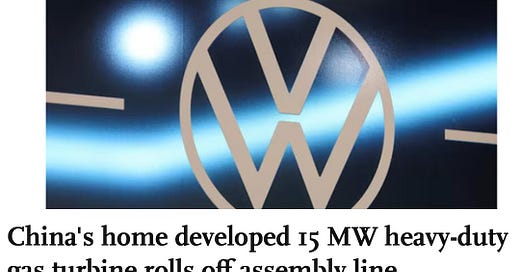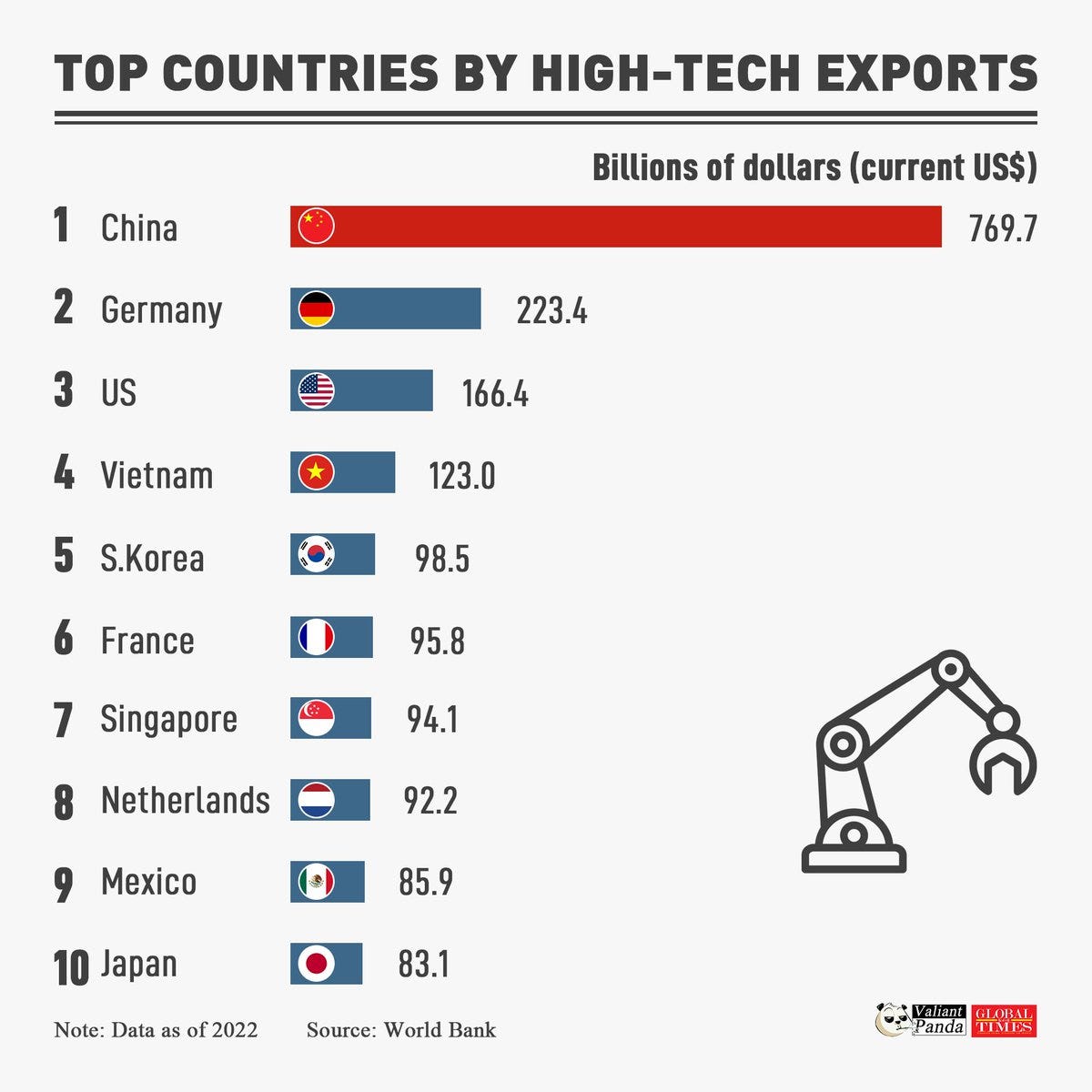Economy up 5% to $8.49 trillion in H1, sustaining post-pandemic momentum.
Finland no longer a major China-Europe hub after severing transit links with Russia and failing to acquire visa-free access to China.
China is installing the wind/solar equivalent of 5 nuclear power stations a week.
Arctic Express No. 1 rail-sea cargo service takes 25 days, not 45. China’s NewNew Shipping Line and Rosatom building five ARC7-class polar container vessels, offer normal, year-round shipping via the Arctic.
New supercomputing Internet creates a nationwide, Internet-based high-performance computing service environment.
Microsoft Windows outage left infrastructure, airlines, banks untouched, thanks to a 2021 campaign to replace foreign systems with domestic ones.. It did affect foreign businesses and luxury hotels in China, however.
America’s chip industry in a death spiral?
Nuclear reactor is meltdown-proof. The first ever full-scale demonstration of a Gas-Cooled Reactor Pebble-Bed Module (HTR-PM) nuclear reactor designed to passively cool itself in an emergency did so despite the total loss of external power.
Record low 53% of electricity generated from coal, down from 60% last year, while a record high 44% came from clean sources.
July CREA environment snapshot:
Thermal power generation declined further, hydro rebounded
Coal imports continue rising, stockpiled.
Fossil fuel consumption share declined in 2024 H1
Iron and cement production continue to fall
Steel industry reaches turning point.
Wind and solar surge in clean energy bases
New energy vehicle (NEV) market share continues increasing
35% of provincial capitals’ average PM2.5 exceeded the national standard
Beijing topped 90th percentile of ozone over 12 months
Beijing recorded highest levels of PM2.5 & ozone pollution
NO2 fell in 80% of provincial capitals, PM2.5 still rising in northern China.
Solar tender prices fell 24% YoY. Since engineering and labor are no cheaper, declining equipment costs plus economies of scale explain it.
The PBOC has $3-$5 trillion of international reserves. Though the exact composition is a state secret, the USD share declined from 79% in 2005 to 58% in 2014, presumably falling further since then. Most reserves are in USD, euro, yen, and pound sterling—including $1.1 trillion US Treasuries, $217 billion Asset Backed Securities (ABS) and $273 billion of equities. Chinese enterprises have $145 billion of foreign direct investment (FDI) in the USA and $83 billion in the EU. Many are state owned or can be linked to the Chinese government—like Huawei—and subjected to US and EU confiscation.






China UP US Down . The invetabe\le trend of the future. Empires eventually die and the US is in a death spiral. Let's hope it doesn't take us all with it